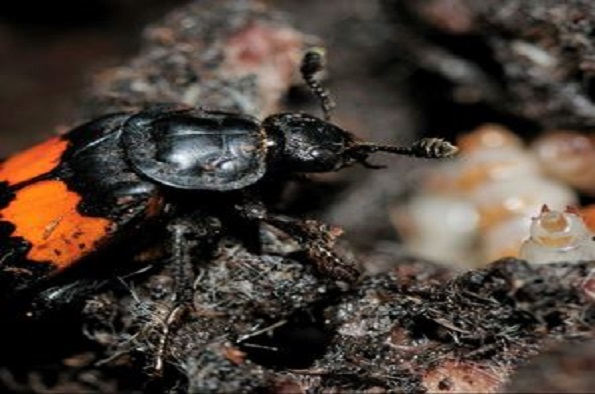
CANCELLED Eating for Health: The Role of Nutrition in Host-Pathogen Interactions
- Seth Barribeau
- Suitable for: Those with an interest in Behaviour, Evolution, Ecology and Microbiology
- Admission: Free
- Book now
Add this event to my calendar
Click on "Create a calendar file" and your browser will download a .ics file for this event.
Microsoft Outlook: Download the file, double-click it to open it in Outlook, then click on "Save & Close" to save it to your calendar. If that doesn't work go into Outlook, click on the File tab, then on Open & Export, then Open Calendar. Select your .ics file then click on "Save & Close".
Google Calendar: download the file, then go into your calendar. On the left where it says "Other calendars" click on the arrow icon and then click on Import calendar. Click on Browse and select the .ics file, then click on Import.
Apple Calendar: The file may open automatically with an option to save it to your calendar. If not, download the file, then you can either drag it to Calendar or import the file by going to File >Import > Import and choosing the .ics file.
Animals are beset by numerous parasites, whose effects range from mildly debilitating to fatal. As a consequence they have evolved a range of behavioural and physiological responses to deal with this threat, including the deployment of a suite of immune responses. However, an effective immune response depends upon the nutritional state of the host. The host needs its resources to service its immune response, whilst the parasite needs the host’s resources to grow and reproduce, and the ‘ideal’ nutritional state for a successful parasitic infection may not be the same as that of an effective immune response. Which leads to the question, which diets best suit the needs of the host and the parasite?
Insects provide an excellent, ethically sound, model to address this question. They harbour a range of micro (bacteria/viruses/fungi/protozoa) and macroparasites and their immune response is evolutionarily and functionally equivalent to the mammalian innate system. Using insect models, we show that different arms of the immune system work most effectively in different regions of nutrient space, and that, when infected, hosts can modify their intake of nutrients to improve their immune response. We also show that parasite growth can be impeded directly by the host diet, and that hosts may in fact choose a diet that inhibits parasite replication, or mitigates its negative effects via tolerance. Thus the nutritional environment can have both bottom-up and top-down effects on host-parasite interactions, and nutrient intake plasticity is a likely target for selection in the battle against parasites.
